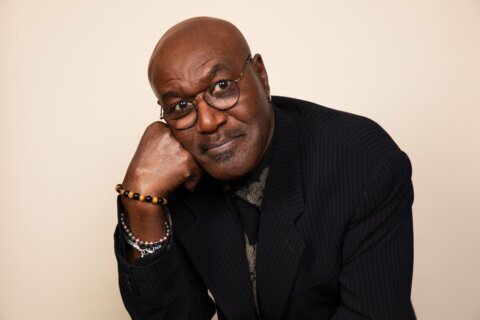WASHINGTON — She won an Oscar as the pregnant police detective in “Fargo” (1996).
Now, Frances McDormand stars in “Three Billboards Outside Ebbing, Missouri,” a wickedly funny dark comedy with anarchist social commentary by writer/director Martin McDonagh.
Set in the fictional Ozark town of Ebbing, Missouri, a vigilante single mom, Mildred Hayes (Frances McDormand), buys ad space on three billboards to challenge Sheriff Bill Willoughby (Woody Harrelson) to investigate her daughter’s unsolved murder from seven months ago.
The film’s worth watching if for no other reason than McDormand’s shattering performance, spitting zingers, weaving monologues and commanding the screen at all times. Two decades after her defining role as Detective Marge Gunderson in the Coen Brothers’ “Fargo” (1996), she now plays the other side of the cop coin — the fiery anarchist challenging the system.
As she sticks it to “The Man,” the frustrated police officers are prodded into action on a cold case with no leads. Woody Harrelson shines as the terminally-ill sheriff who just wants to be left alone in the twilight of life. He’s admired by his police colleagues, played by Zeljko Ivanek (“Damages”), Clarke Peters (“The Wire”) and Sam Rockwell (“Moon”), who steals the show as the alcoholic deputy battling prejudicial demons taught to him by his mother (Sandy Martin).
The deep cast extends beyond the precinct: John Hawkes (“The Sessions”) as her ex-husband who left for a ditsy 19-year-old (Samara Weaving); Lucas Hedges (“Manchester By the Sea”) as the depressed son; Abbie Cornish (“Limitless”) in flashbacks as her late daughter; Caleb Landry Jones (“Get Out”) as the opportunist billboard salesman; and Peter Dinklage (“Game of Thrones”) as a hopeless romantic with unrequited love to rival Mike Yanagita in “Fargo.”
It’s Dinklage who delivers the biggest laugh of the film, a line of deadpan dialogue that we won’t spoil here. Let’s just say that it takes a second for the joke to register, as the audience asks, “Are they really going there?” before howling at the realization, “Hell yeah they are.”
It’s one of many instances that McDonagh (“In Bruges,” “Seven Psychopaths”) pushes the limits of comedy, running our funny bone through the proverbial wood chipper. It’s a wicked humor that will make you spit out your soda; a devilish dark comedy that dares you to be offended.
“The time it took you to get out here whining like a b****, Willoughby, some other poor girl is probably out there being butchered right now,” Mildred quips. Some viewers might be turned off by the language, put-downs and epithets, but if you have thicker skin and look at the bigger picture, you’ll see that it’s all done with the principled purpose of stinging satire.
This social commentary includes race relations, as Mildred calls out the townspeople for ignoring the protests in nearby Ferguson: “It seems the police department is too busy torturing black folks to solve actual crimes.” It also satirizes religion, as she roasts the town priest for his judgmental hypocrisy. Finally, it explores sexual abuse against women, as Mildred grapples with the image of her own daughter being raped at the end of her life.
McDonagh had no way of knowing that this would become such a timely topic in the shocking aftermath of the Harvey Weinstein scandal. As a result, some moments feel prescient, while others feel tone deaf, particularly the sugar-daddy ex-husband and his teenage arm candy.
Even so, these are nitpicky critiques on an otherwise smartly-crafted flick. McDonagh is a dynamic filmmaker, particularly in the order in which he shares plot details. Not only does this apply to major plot twists, but also to smaller moments of revelation. For instance, a lesser filmmaker would have shown the messages of all three billboards in order. McDonagh does the opposite, revealing the billboards in reverse order for maximum drama in slow disclosure.
It helps that he’s assembled a tremendous team in cinematographer Ben Davis (“Doctor Strange”), editor Jon Gregory (“Donnie Brasco”) and composer Carter Burwell (“Fargo”), whose score is complemented by stellar soundtrack selections. We get The Four Tops’ “Walk Away Renee,” Monsters of Folk’s “His Master’s Voice,” Joan Baez’s “The Night They Drove Old Dixie Down” and two versions of “Buckskin Stallion Blues” by Townes Van Zandt and Amy Annelle.
As the latter’s heartbreak cues the cut to black, you’ll want to stay through the end credits. If you do, I promise you’ll carry the song with you for the next week. After all, this is a film about people in pain. Mainstream audiences might find the finale anti-climatic, hoping for a bloody showdown with the culprit, but this is a different film; nuanced, probing and bittersweet.









